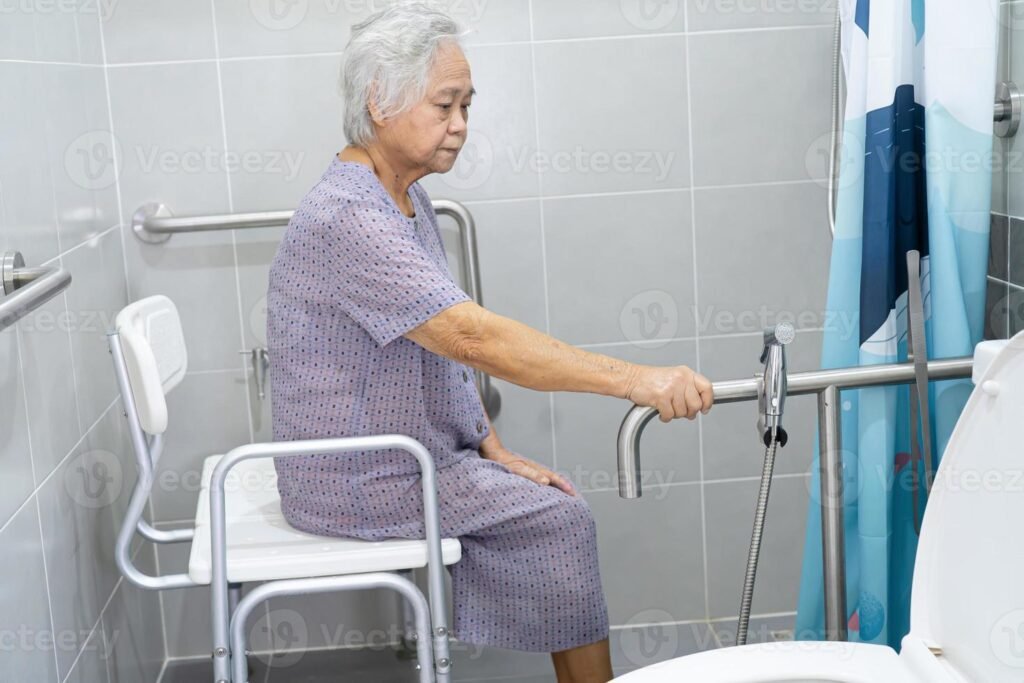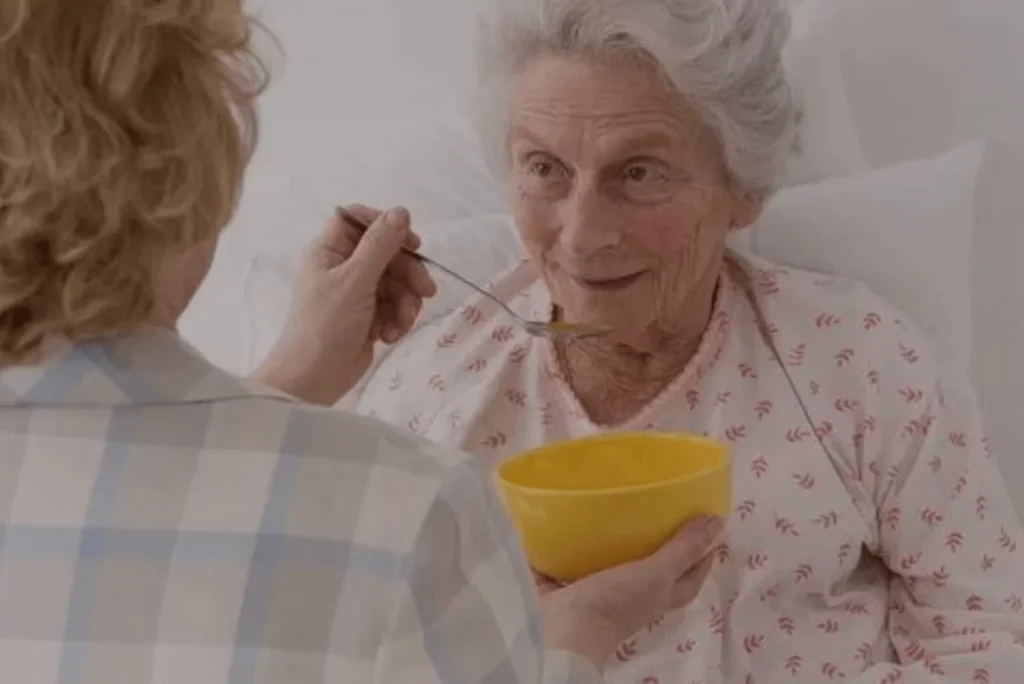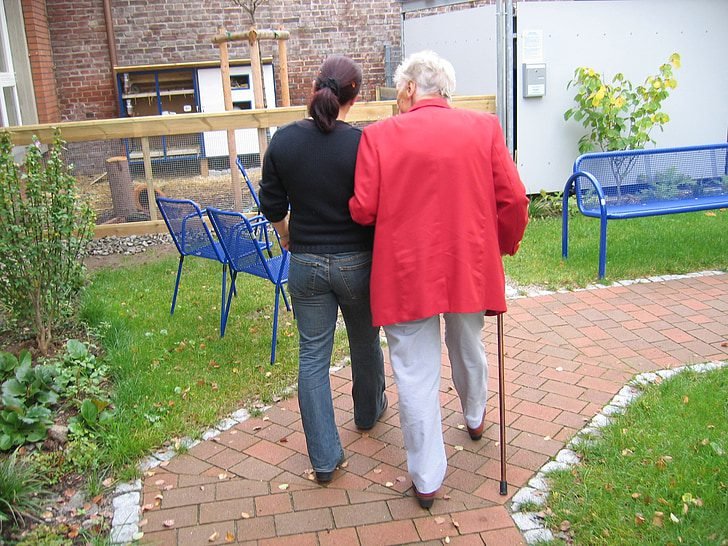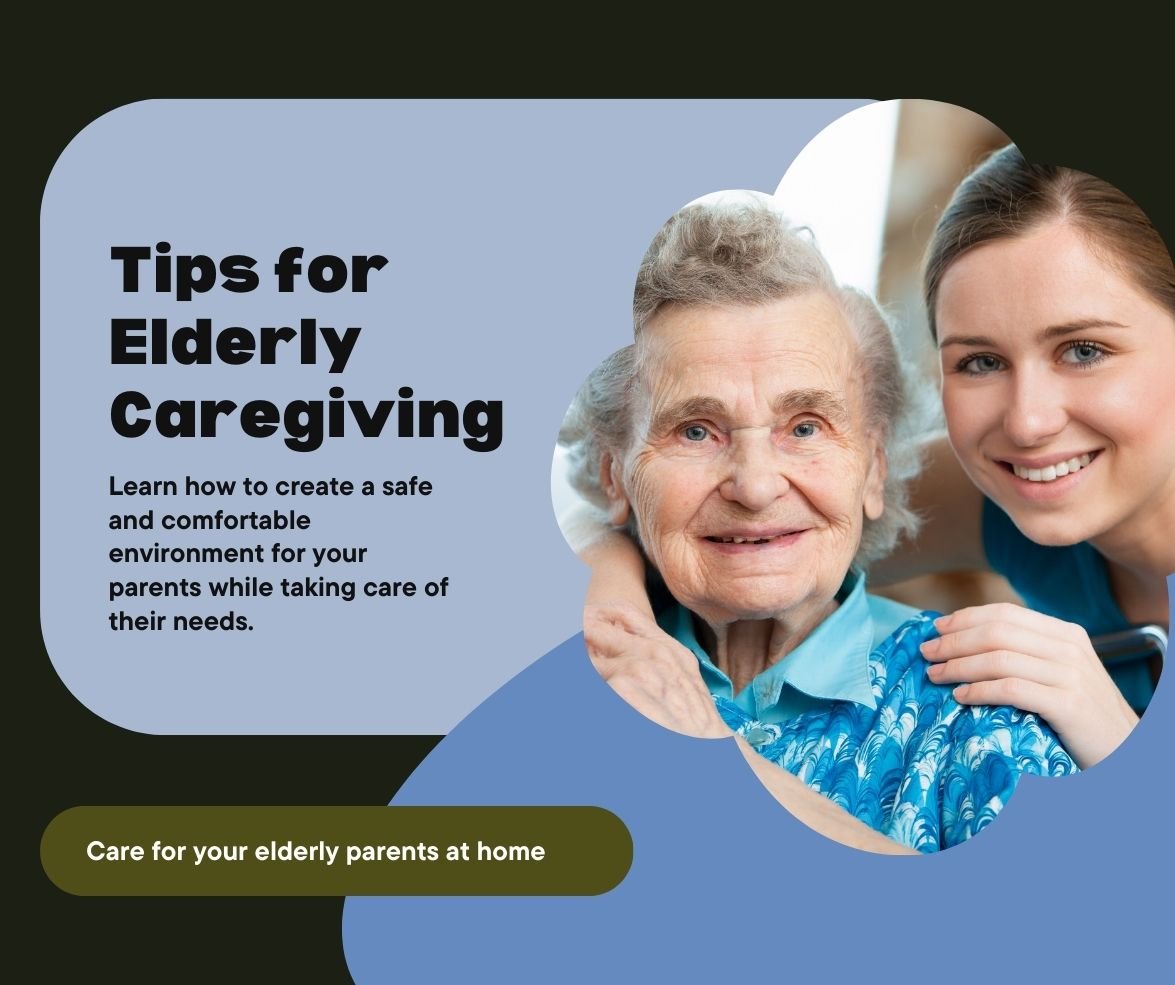25+ Practical Tips on How to Care for Elderly Parents
As an individual age, the effectiveness of daily life activities is significantly reduced. With a change in times, parents may gradually begin to rely on their children and the roles may seem to shift.
This role transition may be a difficult phase for parents and children, especially if children are in their young adulthood. Caregiving comes with responsibilities and is a demanding job to undertake. However, with certain strategies and steps, the caregiving process can be made easier for both parents and caregivers.
How to Create a Supportive Environment for Elderly Parents & Care for Them?
Considering the physical, mental, and social aspects, children can build a supportive and peaceful environment for their elderly parents, which they rightfully deserve in old age. Through some of the effective strategies, children can work on building a calm and supportive environment for their parents.
Safe Living Space
Maintain the security of the living space by ensuring some adequate safety measures. Make home modifications if necessary, such as installing grab bars or eliminating any hazard that may potentially harm the elderly individual through accidents or falls.


Access to Healthcare
Ensure access to healthcare to ensure the well-being of elderly parents. With old age, they may require regular health check-ups with frequent visits to a hospital or consultation with a healthcare professional.
Open Communication
Foster open communication and build a safe space for your parents to raise their concerns. Respect their autonomy and maintain their dignity. Make sure to include them in the decision-making process where possible.
Nutritional Needs
Provide a nutritious and balanced diet according to the dietary needs of your parents. Consult a healthcare professional to determine the dietary requirements of your elderly parent and make sure to intervene accordingly.
Emotional Support
Offer emotional support to your elderly parents. Lend them an ear and engage in meaningful conversations with them to provide them with a sense of security and companionship.
Encourage Independence
Encourage independence by involving senior individuals in decisions regarding the care process. Value their opinions and suggestions and include them in the care plan to validate their feelings.
What are the Specific Needs of Senior Individuals?
Depending on the condition of individuals, their needs can be identified and determined. The conditions may include their mobility, cognitive health, and overall well-being.
Assistance in Mobility
Many elderly individuals require assistance with moving or transferring. As they age, the ability to move their limbs and transfer from one place to another is significantly affected.


Children may have to assist their parents with mobility by using physical strength or providing them with assistance equipment such as canes, wheelchairs, or walkers.
Social Interaction
When individuals are approaching their old age, feelings of isolation and loneliness are more likely to happen. Regular social interaction is necessary to maintain the emotional and psychological well-being of elderly patients.
Arrange family visits more often and plan family get-togethers to provide your elderly parents a chance to interact and engage in meaningful conversations with their loved ones.
Healthcare
Senior individuals may need regular check-ups more often than adults. Some individuals may have a chronic condition or have some medicines prescribed by a healthcare professional.
For children, it is essential to keep a check on healthcare needs and address them when needed.
Nutrition
With age, changes in diets occur as well. Elderly individuals may have specialized dietary needs and requirements. It is crucial to provide individuals with a diet that suits them the best and is the right fit for their health.


Memory Care
Memory care and support should be provided for senior individuals suffering from a decline in their memory. Children can address the needs of their parents with dementia or Alzheimer’s better if they address the condition and intervene accordingly.
Also, Read:
- 101 Fun Things To Do With Dementia Patients (Tested and Approved!)
- Living With Someone With Dementia | Challenges & Dangers
- How To Talk To Someone With Dementia? The Do’s & Don’ts
Safety
Ensuring the safety and security of senior individuals is a key aspect of ensuring their well-being. Create a supportive environment by using handrails and grab bars, or by using proper lighting to reduce risks of falls and accidents.
How Does Aging Impact Care Requirements?
Yes, aging has a major impact on care requirements. With age, people may encounter a decline in their physical, emotional, social, and mental well-being. The care requirements may become more complex, making it frustrating or stressful for the caregiver.
As people age, they may become more susceptible to health conditions such as diabetes or arthritis, making care and support a necessity. Moreover, difficulty in mobility can make performing daily life activities tough.


The ability of an individual to engage in problem-solving and logical situations may affect their interaction with others in daily life. These circumstances can make senior individuals more dependent on their children or close family members.
Another aspect to consider is the finances of caring for an elderly parent. With healthcare expenses and medications, caring for a senior individual can become quite expensive.
What Care Services Can be Provided to Elderly Parents?
Several specialized care programs are available for people in their old age, catering to their needs and requirements. These care programs address the unique needs of each individual based on their mobility, cognition abilities, and health conditions.
In-Home Care
Professional caregivers can provide specialized care and support to patients in the comfort of their own homes. The services may include assistance with ADLs, meal preparation, laundry, or companionship.
Medical Care
Access to medical care and support such as medication management, regular check-ups, or medical treatments can be provided to elderly parents. Certain therapies such as physical therapy, occupational therapy, and language therapy can be provided to individuals based on their needs.
Assisted Living Care
Specialized care programs are provided in assisted living that focus on the independence of residents. The compassionate care team provides support with activities of daily living but modifies them in such a way that independence and dignity are kept intact.
Nursing Homes
24/7 medical care is provided by licensed nurses who aim to improve the health conditions of individuals by various strategies. The specialized care team addresses complex medical conditions and assists with daily life activities.
Hospice Care
For individuals with terminal diseases, care services are provided to improve their quality of life. Usually, people with a prognosis of 6 months or less opt for hospice care services. The main aim is pain and symptom management and providing emotional support for both patients and their families.
What Are The Four Levels Of Hospice Care? [EXPLAINED]
How to Address the Emotional Needs of Elderly Parents?
Addressing the emotional aspect is essential to improve the overall well-being of elderly parents. Through several ways, emotional support can be provided to senior individuals.
Regular Communication
Stay in touch with elderly individuals, arrange regular visits, and plan family get-togethers more often. Having people around can significantly enhance mental health
Active Listening
Take time to listen to their concerns and validate their feelings. Provide a suitable solution to their problem if possible.


Make sure to listen attentively and understand their concerns without any judgment.
Address Grief and Loss
Feelings of grief are common as an individual approaches old age. They may encounter the loss of their partners, families, or friends. The negative feelings of isolation, depression, and stress are more likely to happen in old age.
Provide Reassurance
Offer reassurance that their feelings are valid and heard. Eliminate any doubt and fear and ensure that the individuals are provided with a safe and comfortable space.
Create a Supportive Environment
Create a supportive environment and make sure senior individuals feel respected and valued. Make sure to deal with tolerance and understanding with them.
Respect Privacy
Respect their dignity and privacy by maintaining their personal space. Make sure to give them control over their lives as much as possible.
Provide Therapy or Counselling
Though professional therapy and counseling sessions, help your loved ones effectively deal with negative feelings and emotions.
Is Providing Care to Elderly Parents Expensive?
Yes, depending on several factors, providing care to elderly parents can be expensive. Many factors such as the level of care needed and types of services required are valuable considerations in determining the cost of care provided.
Hiring professional caregivers or opting for care services can be expensive. Depending on the types of services availed, some may be covered by insurance, reducing the financial burden of caregiving.


Moreover, depending on the health condition of the individual, the cost of care may vary. Some may require mobility assistance equipment while some may need memory care programs.
To reduce financial burden, families can choose government programs or long-term insurance programs. However, the eligibility and cost coverage may vary.
Preventing Caregiver Burnout
Being a caregiver can be a frustrating and distressing task to undertake. It is crucial to care for yourself too so that your ability to provide for your loved one isn’t compromised.
Engage in Self-Care Activities
Prioritize your well-being and engage in healthy activities. Eat healthy, take rest, do regular exercise, and engage in activities you find fulfilling and rewarding.
Sustaining energy is essential to provide quality care and support to your loved ones as well.
Respite Care
Arrange respite care and allow yourself to relax for a temporary time. In respite care, a professional caregiver allows you to attend to your personal needs while your loved ones continue to receive a high level of care and support.
Set Boundaries
Set clear boundaries to ensure your well-being. It is okay to say no to tasks you find tough and demanding.
Practice Stress-Relief Techniques
Engage in stress-relieving exercises. Practice deep breathing, meditation, or yoga which are influential ways to release stress and prevent burnout.
Maintain Social Interaction
Maintain your social relationships with the people around you. Engage in interactions with your friends and families to avoid feelings of isolation and prevent burnout.
Know When to Transition to a Different Care Setting
Transitioning to a different care setting is no doubt a stressful step for patients as well as families. It is crucial to pay close attention to signs suggesting the need for a specialized care setting.
Increased Care Needs
If the level of care exceeds what can be provided easily at home or by family members, it may suggest the need for a specialized care setting or professional caregivers.
Health Decline
If the health of an individual declines, including mobility and cognitive abilities, a specialized care setting can be considered to provide quality care and support.


Consultation with a Healthcare Professional
Consult healthcare professionals and get their opinions regarding the care plan of your loved ones. Get help in determining the level of care required to ensure the well-being of your loved ones.
Safety Concerns
Frequent incidents of falls and accidents can suggest the need for a specialized care setting. Professional caregivers provide a supervised setting reducing risks of injuries and harm to the senior individuals.
Caregiver Burnout
If the caregiver experiences burnout or emotional exhaustion, specialized care settings can be considered to ensure the wellness of the caregiver as well while their loved ones receive the utmost care and support.
Conclusion
No wonder watching your parents gradually depend on others for everyday tasks is a distressing situation to encounter. However, it is necessary to acknowledge the importance of a high standard of care and support to ensure the well-being of your loved ones. Ensuring the well-being of elderly parents is the topmost priority of families. It is okay to feel burnout and consider other specialized care options. Individuals can continue to be a part of their parent’s care process while they receive quality care and assistance.
FAQs
How do I balance caring for my parent with other responsibilities?
Prioritize tasks and determine the urgency and importance of activities. Seek support from other family members if providing care gets too burdensome.
Is there an effective way to talk to my parent regarding their end-of-life preferences?
Approach the topic gently and allow your parent to express their wishes and feelings. Make sure to stay patient and understanding.
Can disagreements and resistance from an elderly parent be effectively handled?
Yes, approach them with empathy, listen to their concerns, and value their opinions. Involve them in decision-making to effectively avoid any disagreement or conflict.
How do I keep my elderly parent mentally active and healthy?
Encourage activities that involve problem-solving and logical reasoning. Moreover, regular social interaction can also help elderly individuals stay mentally active.
What emotional factors should I consider when transitioning my loved one to a different care setting?
Individuals may encounter feelings of loss of independence, difficulty in adjusting, and negative feelings of fear and anxiety due to transitioning to a new setting.



![20+ Signs Your Elderly Is Ready for Assisted Living [2024]](https://caringhandshomecarefl.com/blog/wp-content/uploads/2024/01/Signs-Your-Elderly-Is-Ready-for-Assisted-Living-768x644.jpg)

![Sudden Excessive Sleepiness In The Elderly [Causes & Solutions]](https://caringhandshomecarefl.com/blog/wp-content/uploads/2023/12/elderly-sleep-disorders-therapy-768x512.jpg)

